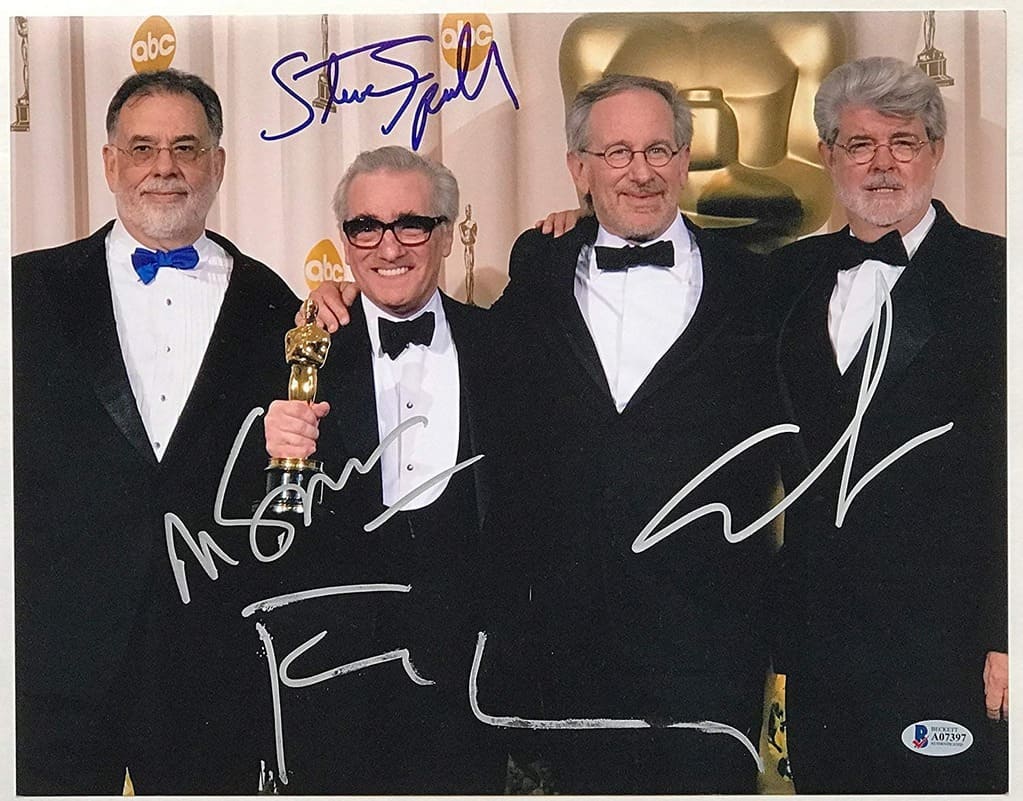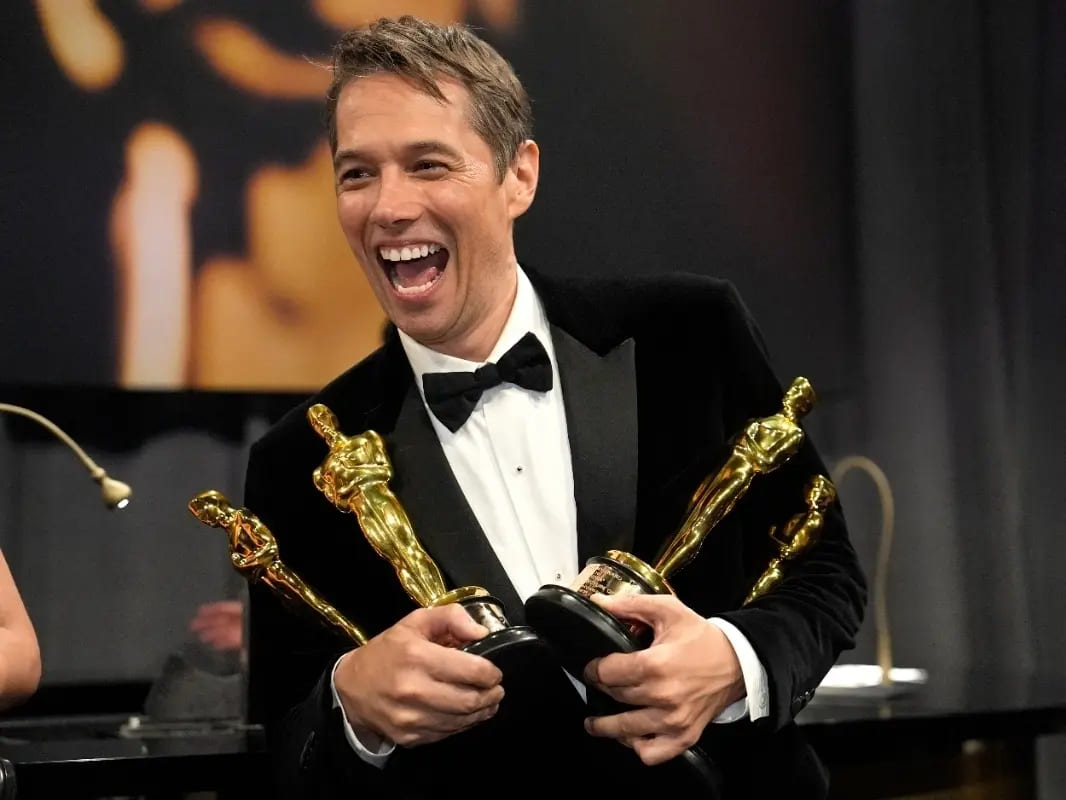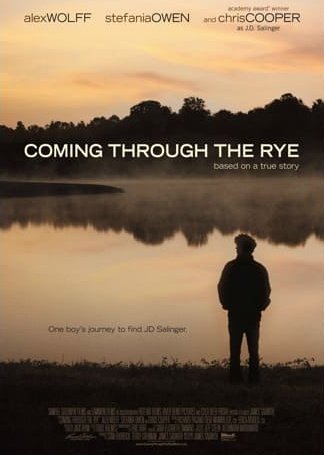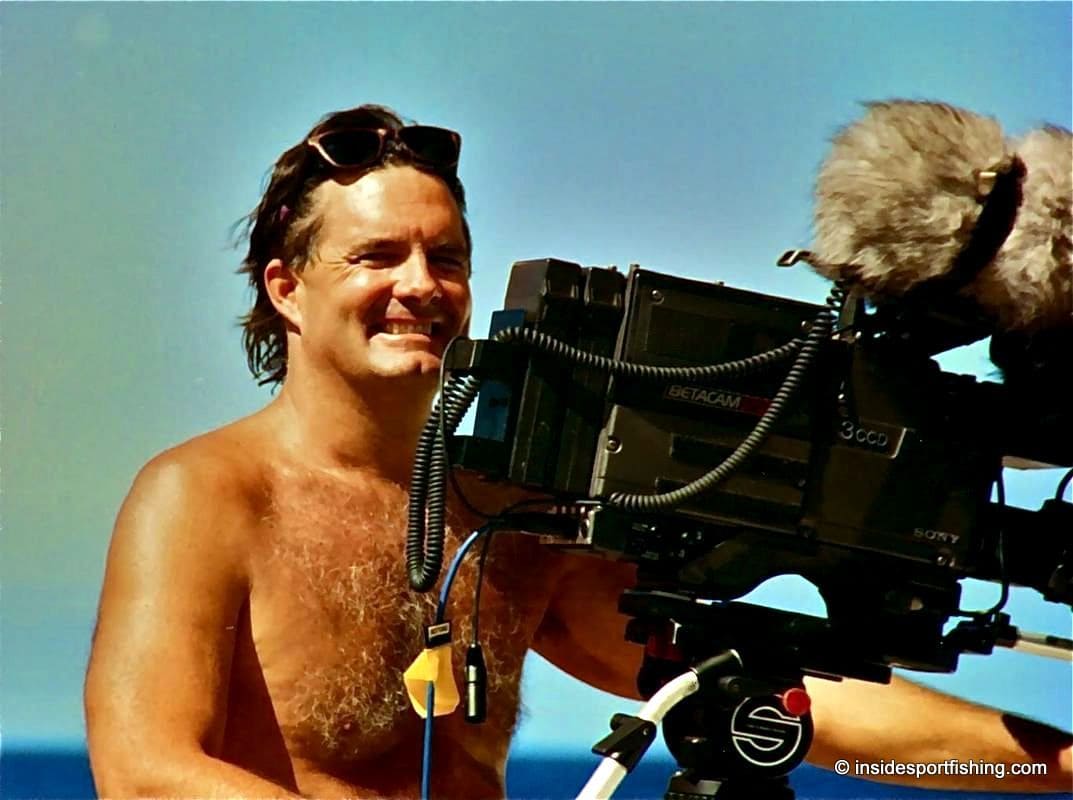Film Financing lessons from famous producers such as Steven Spielberg, Martin Scorsese, Lee Daniels, Kevin Smith, Richard Linklater and more. One of the biggest take-aways here is that film financing is a never-ending process...no matter how famous these producers and directors are, successful filmmakers see film financing as an innate part of film production throughout their careers.
Many of the world's most famous film makers did not use traditional film financing methods or film investors, nor did they make their most famous films at the beginning of their careers. Here are some famous film maker interviews and stories to inspire you and let you know even the most famous film makers have and continue to face film financing challenges.
The main theme you will notice below is that every filmmaker here (except ONE) worked HARD to secure funding for their movies. They were resourceful, creative, inventive, detailed and diligent, using their talent not just to make their films, but also to finance them. Please take the time to learn from the best as they offer some of most valuable filmmaker lessons you can learn. They demonstrate that the time to learn about film financing is NOW, because it's not a part of the filmmaking process that gets less difficult over time.
The Brutalist Financing
"The Brutalist," directed by Brady Corbet, has captivated audiences and critics alike, culminating in a Golden Globe win for Best Motion Picture – Drama 2025. Beyond its artistic achievements, the film's journey from concept to screen offers invaluable lessons in indie film financing.
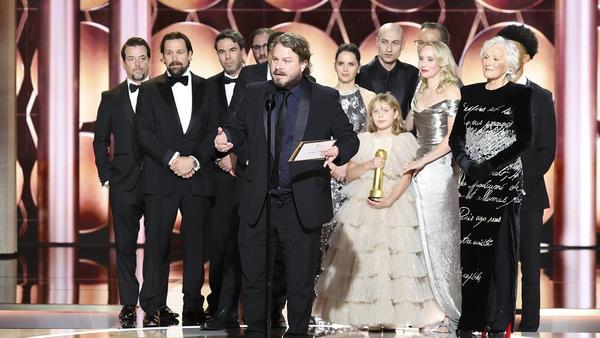
Financing and Budgeting Strategies:
Corbet's ambitious vision for "The Brutalist" required a substantial budget, which he secured through a combination of private equity, international pre-sales, and strategic partnerships. By aligning with production companies experienced in independent cinema, he ensured both creative freedom and financial backing.
Leveraging Tax Incentives:
The original line producer budget for The Brutalist was projected @ $25M, however the film was made for $10M. A significant portion of the film was shot in Hungary, a country renowned for its favorable tax incentives for filmmakers. Hungary offers a 30% rebate on eligible film production expenses, a program recently extended through 2030 with a projected $3 billion budget (Screen Daily). This incentive substantially reduced production costs, allowing for allocation of resources to other critical areas. They then took their post production to England, where they secured additional tax incentives, lowering their original projected budget by more than half. To date, the movie has only been released in 8 theaters domestically and, as of January 6 (hours after the Golden Globe win) has secured $1,171,475 in Domestic BO.
Budget Allocation:
The production team prioritized funds towards high-quality cinematography, securing top-tier talent, and authentic set designs to accurately depict the film's historical context. This meticulous budgeting contributed to the film's critical acclaim and award-winning performances.
Attracting Talent and Investors:
By presenting a compelling narrative and a well-structured financial plan, Corbet attracted esteemed actors such as Adrien Brody, whose involvement further enticed investors. Brody's portrayal in the film earned him the Golden Globe for Best Actor in a Motion Picture – Drama.
Sean Baker on Financing Anora
🎬💰 Did you know?
"Anora" winning the Oscar for Best Picture in 2025 made it the 16th independent film to win the award in the prior 18 years! It also made Sean Baker's four wins for "Anora" tied Walt Disney's record for most Oscars won by one person for a single film, which Disney achieved with four different projects in 1954. Not bad for a $6M budget. As usual, our Film Business Plan Template is updated with this information, giving you the ability to show investors how strong the indie film market is in 2025.
💡 Some of the key messages of the night were:
- Indie Films are the clear winners.
- Theaters and Exhibitors are not even close to dead!
🔹 What did you think of the film and how is it going with yours?
André Holland on Why Getting Financing for ‘Love, Brooklyn’ Was the ‘Hardest Thing He’s Ever Done’
"It took more than five years to pull the indie production together — with the struggle to secure financing exacerbated by “worthy delays” like the COVID pandemic and Hollywood’s dual strikes. “Independent filmmaking is difficult,” says Holder, who joins Holland for the interview. “There isn’t enough money — although I feel like when there is a lot of money, there still isn’t enough money. We had many hills to climb, but I feel like we got to the best pinnacle.”

Source: André Holland on Why Getting Financing for ‘Love, Brooklyn’ Was the ‘Hardest Thing He’s Ever Done’
"The Daniels" Financing Everything Everywhere All at Once
When asked if the move was hell to finance, Dan Kwan responded, 'It was actually really easy,'
Wait, WHAT? Said Filmproposals. Because we actually say no filmmaker has ever said that. I guess we'll have to change our tagline to "Said ONE filmmaker!" To be fair, they "returned in 2018 to their Swiss Army Man backers, which not only financed the film, but also respected the Daniels’ insistence it should be a theatrical experience."
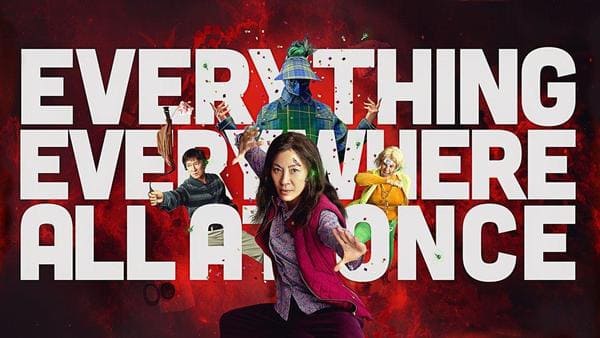
Source: Everything Everywhere All At Once’: the story behind an unlikely $100m hit
Scorsese Financing The Irishman
'Nobody would give us the money' - It took Martin Scorsese over 10 years to get financing for The Irishman - and that was with him, Pacino and De Niro attached. If this doesn't tell you how important financing will ALWAYS be as part of your filmmaking career, nothing will.
“People just weren’t interested in financing it—and that was before the CGI,” Scorsese says. “Nobody would give us the money. But I really felt that De Niro and I had one more picture to make...”
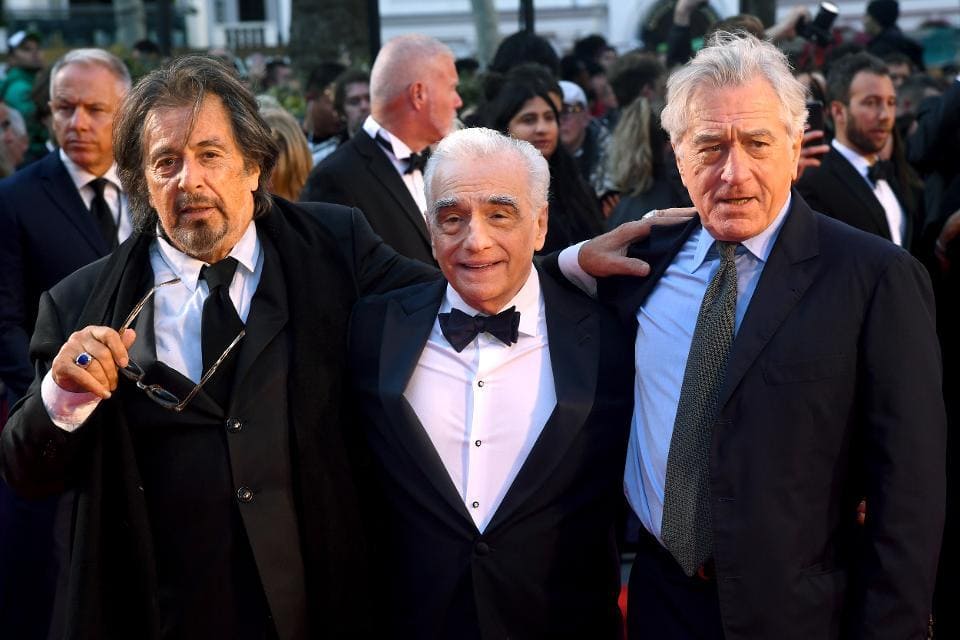
Source: Inside Martin Scorsese's The Irishman Fight
Richard Linklater Film Financing Lessons
Time Magazine asked, "Was it hard making the business case for financing the film [Boyhood]?"

"I talked to some producers and they're like, ‘Huh? What? We're gonna pay and not ...' It just made no sense. But then IFC came aboard. I had done two films with them, Tape and Waking Life. They took the long term view. And it wasn't that much money, about $200,000 a year. We're shooting on film. It was very low budget. And they just took the leap. I fully expected halfway through to be abandoned and have to seek other financing. I never had to, though. It's a minor miracle."
Source: Everything You Need to Know About the Making of Boyhood Over 12 Years
Producer Celine Rattray (The Kids Are All Right)

The 2010 lesbian family drama, made for less than $5 million, grossed seven times its budget and more than doubled its investors' money. Producer Celine Rattray explains how she did it — and offers other tips on how to raise cash to fund movies. She discusses new financing sources, like Netflix and Amazon, how she's raised funds for over 40 movies, the importance of tax incentives, timing of investor ROI, and how to be "investor-friendly," as there's nothing more satisfying than repeat business from investors.
Read more: How to Find "Savvy" Money for Your Movie.
Kevin Smith Film Financing Lessons
At the Independent Feature Film Market in 1994, an audience member asked Kevin Smith how he raised the money for Clerks? - The short answer, Credit Cards.
"Over the previous few years a friend of mine, Brian, and myself had this running competition to get as many credit cards as possible; it's one of those things you do when you are bored... I figured we can make this movie for $25,000 and I have enough room on my credit cards to do that. So let's just shoot and start cutting it, and when we hit $25,000, we start worrying. Clerks initial film financing was $27,000, before the soundtrack was added."
Related Articles:
Lee Daniels Film Financing Lessons
Think you have it rough? Lee Daniels is known for producing incredibly controversial films, such as The Woodsman, starring Kevin Bacon as a convicted sex offender, and Monster’s Ball, a melodrama about bigotry and interracial love in the South. When figuring out the film financing for Precious, Daniels had to face that Shadowboxer hadn’t done so well. Read all about Lee Daniels' Film Financing Lessons and how he overcame these setbacks.
George Lucas made five, mostly unheard of, short films, before he made a 15 minute science fiction short, Electronic Labyrinth THX 1138 4EB. He won a prize, along with a scholarship to work with Francis Ford Coppola at Warner Brothers, when they formed their own company and made the feature length version of THX 1138. This helped him get film financing for American Graffiti. The success of American Graffiti helped finance Star Wars. Today, George Lucas is the most financially successful independent filmmaker in the world.
Steven Spielberg produced 3 films (I Wanna Hold Your Hand, Used Cars, Continental Divide) before he produced E.T. The Extra Terrestrial. He also directed over 10 movies, along with many television shows, before he directed Jaws and Close Encounters of the Third Kind.
Ralph Fiennes on Directing "The White Crow"
"It’s Been a Very, Very Long Road"
“It’s been a very, very long road. We were mad. We were mad to take on this subject of Rudolf Nureyev. Mad. Completely mad,” Fiennes said. “But we did it … many of you here, who know the film business or are close to the film business, you know how hard it is to put a film together, to raise the finance, to get the resources, especially when the independent film world is so challenged at the moment.” (Source: variety.com)
Matthew McConaughey on "Dallas Buyers Club"
"We didn't have any money to make it"
"Getting "Dallas Buyers Club" on the screen was no easy task and Matthew told Howard (Stern) about some of the early struggles he encountered while trying to get his passion project made. "We willed that picture into happening," Matthew said of he and director Jean-Marc Vallée. "We didn't have any money to make it. We were talking out of our asses, we were bullshitting, but the thing is, we didn't flinch."
When the financing goals came up millions of dollars short, Matthew explained how Vallée cut costs by scrapping the entire grip department, a.k.a. the lights. "The only light on the entire set was a headlight from the car that pulled me up." (Source: howardstern.com)
Charlize Theron on "Bombshell"
"I think I aged about five years on that day"
"Two weeks before shooting we had to basically find our financing all over again. When you go to a story like this you just have to put your flight jacket on and lean into it and I think for some people this kind of stuff scares them." "Our financier really stepped up within a day and Lionsgate were great, but I don't want to go through that again! I think I aged about five years on that day. We'll never know truly what that [problem] was, but I do think ultimately, everything happens for a reason. When you make a movie, it's the ultimate experience of letting the universe take over sometimes. " (Source: celebretainment.com)
Satyajit Ray on Making Pather Panchali
"The West Bengal government finally pulled Ray out of debt with the grant"
A classic case in point is the story of auteur Satyajit Ray’s struggle to make Pather Panchali. At a time when cinema was leaning towards extravagant productions in Mumbai, Ray, influenced deeply by the simplicity of post-war Italian cinema, opted instead for a small, human story like Pather Panchali. No one was interested in backing him. As legend goes, a loan against his insurance policy and borrowings from friends and family formed the initial investment on the film. It is said that Ray landed in significant debt trying to finish his passion project. The West Bengal government finally pulled Ray out of debt with the grant of a princely sum of Rs 2.1 lakh! Their investment paid off as the movie went on to earn them a handsome profit. (Source: moneycontrol.com)
Independent Filmmaker Jim Cummings on Thunder Road
"I sold my wedding rings to make a movie"
Jim Cummings worked really hard to secure funding for Thunder Road, which won the Short Film Grand Jury Prize at Sundance in 2016. In 2018, after additional fundraising, the movie was released as a full feature film. To make the feature, he and his team raised over $36,000 on Kickstarter, used their own savings (and sold some wedding rings) as well as secured additional donations for $64,000 to meet their budget goals of $200,000. The important lesson here is that Jim started with a short that was filmed using friends as talent and crew over a 6 hour period. After much post production, that short film won Sundance and was then made into a feature, winning even more awards. Not once during this process over several years did Jim ever sit back and relax - he was constantly shooting other single take short films, working contacts, posting to social media, redoing budgets, making spreadsheets of theaters and much more. He kept people on his Kickstarter page, while also showcasing their talent, by offering 30 or 40 minutes worth of quality content. There is so much to learn about how Jim Cummings made Thunder Road and how it can help you finance your film.
"I think a lot of filmmakers really don’t understand that there are people out there in the world that have a decent amount of money that just want to be able to support the arts and ensure that something would be very good." (Article Source: forbes.com)
How Wes Anderson Made The Royal Tenenbaums
What were Gene Hackman's hesitations in taking the role?
“Yeah: no money. He’s been doing movies for a long time, and he didn’t want to work sixty days on a movie. I don’t know the last time he had done a movie where he had to be there for the whole movie and the money was not good. There was no money. There were too many movie stars, and there was no way to pay. You can’t pay a million dollars to each actor if you’ve got nine movie stars or whatever it is — that’s half the budget of the movie. I mean, nobody’s going to fund it anymore, so that means it’s scale.” (Source: vulture.com)
More Film Financing Lessons

Check out our Film Financing Tips from other Filmmakers, where you will learn more film financing lessons from those those who have successfully financed their films. Tips include creative use of props and locations, rechargeable batteries, tax deductible donations, grants, Kickstarter campaigns, private investments and much more!
Want to showcase YOUR movie on FilmProposals? Tell us HOW YOU FINANCED YOUR FILM!
Back to Top of Film Financing Lessons
FilmProposals Film Finance Lessons
You can find additional First Film Financing stories, including The Coen Brothers, Blood Simple; Richard Linklater, Slacker; and Quentin Tarantino (My Best Friend's Birthday, prior to Reservoir Dogs) and more in our Independent Film Financing Manual.
10 Things You MUST Do To Attract Film Investors

We consider this THE MOST important article on this site. The 10 Things You MUST Do To Attract Film Investors have been cultivated over 16 years in the film industry and being able to work with 1000's of filmmakers. Our experience allowed us to analyze and learn from those who have achieved success and made their indie film vs. those we never hear from again. We lay out all the crucial steps to set you up to be the former - the successful indie filmmaker. Never contact a film investor until you've read this article.
Back to Top of Film Financing Lessons
Film Investing Article About "Precious"

Lee Daniels is known for producing controversial films, such as The Woodsman starring Kevin Bacon as a convicted sex offender and Monster’s Ball, a melodrama about bigotry and interracial love in the South. The first film he directed, Shadowboxer, which he also produced, has a loony premise: a hit man having an affair with his dying stepmother and raising a child together.
When figuring out the film financing, Daniels had to face that Shadowboxer hadn’t done so well. “It was very, very hard to get financing for Precious. All the studios said no. They didn’t want to make a film about a 350-pound black girl who is abused. Everybody kept saying no. My whole life was no. It was just a bunch of nos.”
Eventually, Daniels found independent financing. For Shadowboxer, he found a “ rich man in Philadelphia who paid for the movie, God bless him.” For Precious, Daniels raised the initial $8 million from Sarah Siegel-Magness and Gary Magness, who live in Denver.
Things to note in this article for yourself, the Film Maker, and your Business Plan:
- Daniels pursued some very "non-Politically Correct" type subjects, with some flops on under belt, but yet, has produced some of the decades' finest and highest grossing films
- Critics didn’t like ‘Shadowboxer,’ but a lot of African-Americans understood it. And Sapphire (the Author of "Push") saw it and trusted Daniels "with her baby.”
- "It was very, very hard to get financing for ‘Precious.’ All the studios said no. They didn’t want to make a film about a 350-pound black girl who is abused. Everybody kept saying no. My whole life was no. It was just a bunch of nos.”
- "He had read a script for one of his clients, a white actor named Wes Bentley, called “Monster’s Ball,” and he decided to raise the money and produce it. “Just like that,” Daniels recalled. “I had a 90-day option to raise the money for ‘Monster’s Ball,’ and on the 90th day, I had the money.”
- Lionsgate bought “Precious” for $5.5 million
Source and Full Article: The Audacity of ‘Precious’ New York Times, October 25, 2009 ©
1000 Ways to Finance Your Movie
- 1000 Ways to Finance Your Movie
- Film Grants, Funds & Tax Incentives
- Film Financing for Independent Filmmakers
- Film Financing Lessons from the Pros
- How the Best Independent Films were Funded
- Indie Financing Tips
- Independent Film Investors
- Free Film Templates, Tools, Downloads and Samples
- List of Film Grants
- Top Expert Film Grant Tips
- Documentary Funding Tips
- List of Film Festivals
- How to Use Film Festivals for Funding
- Prize Money to Make a Movie
FilmProposals - 2025 Financing Toolkits & Bundles
DIY Toolkits, Legal & Finance Service Bundles
See All Financing Toolkits, Financing Bundles & Film Legal Packs
Gold Toolkit
DIY Templates- Financing Manual
- Financial Projections Template
- Business Plan Templates (Narrative & Documentary)
- Investor Agreement Outline
- Film Budget Template
- Indie Film Pitch Deck
- Custom Indie Film Database
- BONUSES (MPA Market Stats, Dealmaking, Investor Tips, ++ )
- Regular Price $303, Save $124
Gold Toolkit + Financials Bundle
Most Popular- Full Gold Toolkit
- + Professional Sales Projections & Investor ROI (10 Films)
- Regular Price $802, Save $103
Platinum Bundle
NEWEST!- Full Gold Toolkit
- + Professional Sales Projections & Investor ROI -10 Films (Reg $499)
- + Film PPM Investor Agreement (Reg $499)
- + Filmmaker Legal Pack (Reg $129)
- Regular Price $1430, Save $231
While our FilmProposals Bundles & Toolkits will save you hundreds of hours with prewritten text and templates and speed up your learning curve by showing you how to complete complicated financial projections, there is still a lot of information to process. We designed this FREE Film Business Plan Course to be sent once per week to break the process of writing your business plan into manageable pieces, and to keep you accountable and focused.
FilmProposals Tools and Templates
- Film Financing Bundles
- Film Financial Projections Template
- Film Business Plan Template
- Documentary Business Plan Template
- Film Financing and Investor Manual
- Film Budget Template
- Indie Film Pitch Deck
- Film Investor Agreement Outline
- Film Investor Tip Sheet
- Filmmaker Legal Pack
- Indie Film Database
- FREE Business Plan E-Course


